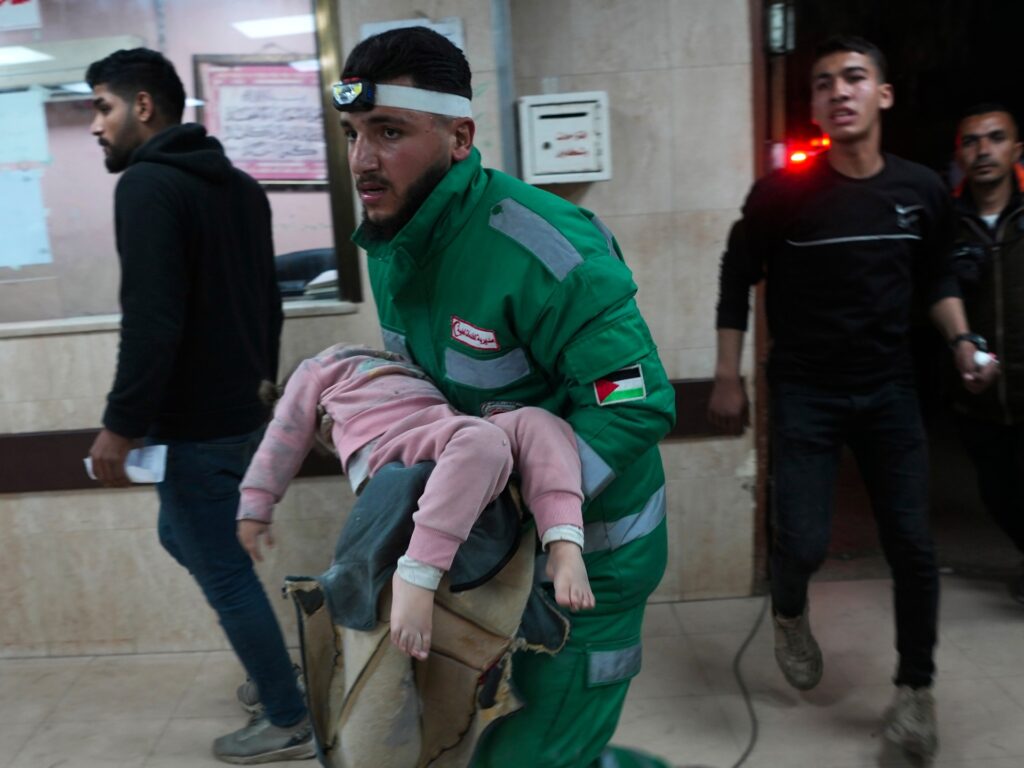This week, more than 40 health justice organizations around the world issued an urgent appeal to the global health and human rights community. In an open letter, we call on the world's health organizations, health organizations, professional associations and the World Medical Association (WMA) to challenge the Israeli government's continued onslaught on Gaza because the war against Palestine is a health issue. called on them to take immediate action. Justice too.
The Israeli onslaught, which the International Court of Justice (ICJ) ruled “probably” met the criteria for genocide, has claimed the lives of more than 30,000 Palestinians in less than five months. This means that since October 7, Israeli forces have killed an average of 250 Palestinians a day, a higher death rate than any other conflict in the 21st century. Additionally, more than 70,000 Palestinians have been injured and more than 1 million have been displaced.
There is no doubt that Israel's deliberate targeting of hospitals across Gaza (considered a war crime under international law) contributed to this staggering death toll. As of this writing, only 11 of her 35 hospitals in Gaza are partially functional.
Israel has destroyed far more hospitals than those in Gaza. In addition to targeting laboratories, other medical facilities, ambulances, doctors, nurses, and patients, the blockade of life-saving medical supplies has thrown a wrecking ball through Gaza's entire health system, with 2.2 million people at once receiving little or no medical care. I am in a situation where I cannot receive it. They face near constant indiscriminate shelling and the threat of starvation. At least 337 medical workers have been killed in Gaza since the war began, including two of only four pathologists.
People suffering from chronic diseases are unable to access vital medicines, and the disease is spreading at an unprecedented rate amid a sanitation crisis caused by a severe lack of access to clean water. The World Health Organization (WHO) described the medical situation in Gaza as “indescribable”.
A study published by the Johns Hopkins Bloomberg School of Public Health in the United States and the London School of Hygiene and Tropical Medicine in the United Kingdom estimates that 86,000 people will die in the next six months as a result of the escalating conflict. It has been suggested that nearby excess mortality may occur. Diseases caused by war, epidemics, and malnutrition are believed to be the cause. The report estimates that even if there is no escalation and the situation remains as it is, there will still be 66,720 excess deaths in Gaza over the next six months.
That is why, as activists, health workers and organizations working in the health sector for justice, equity, anti-racism and decolonization, we must use our voices to encourage our colleagues and others, especially They are calling out, urging, and forcing the World Health Organization. and that the Association take action. As Israel uses health care, food, and water as weapons of war, we speak out as an organization that has been working on issues of health justice and access to medicine for millions of people around the world. End impunity and demand real action and consequences.
So why target our call to the global health community? We feel there is a widespread lack of consideration by many in this community about the ongoing health crisis in Gaza. As we noted in our open letter this week, the pages of the 17 global health journals currently occupying the public sphere contain little discussion of the current state of medical services in Gaza. Our research found that a PubMed search for journal articles containing the words “global health,” “Gaza,” and “health” published since October 2023 found that The Lancet featured a discussion of ethical issues. Only two articles were retrieved: Journal and British Medical Journal. , human rights and occupational challenges arising from the current conflict.
So we ask, why are universities, medical schools, professional associations, and academic societies silent? Aside from a few isolated public statements, the response from those expected to uphold the highest medical and scientific professional and ethical standards around the world was deafening silence.
The American Medical Association (AMA) rightly issued a very strong condemnation of Russia's invasion of Ukraine in 2022, but some members are trying to do the same for Israel's Gaza war in 2023. The effort was discontinued. And at this stage of a genocide, continued silence would be considered complicity.
This shows a blatant double standard that can only be explained by the racist dehumanization of Palestinians.
A climate of pernicious censorship, particularly in the Global North, publicly victimizes health workers and academics who seek to speak out in their personal capacity to defend Palestinian rights and oppose racism. It is also connected to doing. But we refuse to be silent and call on the entire global health community to stand firm against this threat.
We condemn Israel's war crimes, unequivocally condemn the ongoing genocide in Gaza, and Israel's years of medical apartheid in the Occupied Palestinian Territories, and we stand up for being targeted for speaking out about anti-Palestinian racism. We must support our colleagues who are
We must also put pressure on all governments to immediately restart and increase funding for the United Nations Relief and Works Agency for Palestine Refugees and other organizations supporting Palestinians in Gaza and other occupied territories. not. We should refuse to cooperate with Israeli health institutions, universities, research councils, pharmaceutical companies, and organizations associated with the military in any way.
As medical professionals and activists, we have a moral and professional obligation to speak up. We also have an obligation to do everything we can to stop and prevent this genocide. To do anything less would be a complete dereliction of our duty to support and preserve everyone's right to health.
The views expressed in this article are the author's own and do not necessarily reflect the editorial stance of Al Jazeera.


